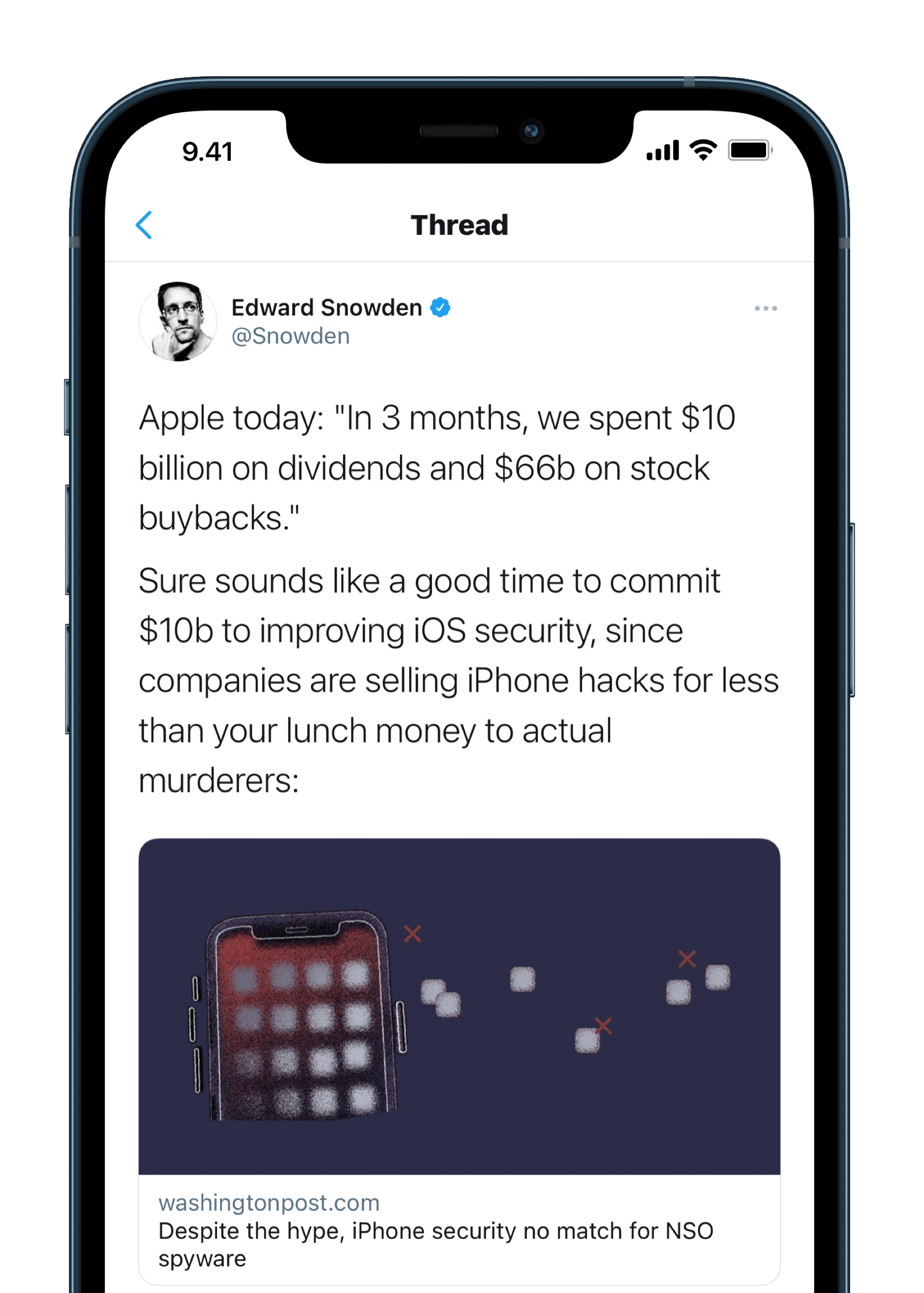Investition in (Geräte-)Sicherheit

„9 Monate, nicht 3 Monate“, wie er selbst korrigiert. Die Aussage ändert es nicht. Es ist das gerne gespielte Spiel: „Wir geben Tims Geld aus!“
Apple könnte tatsächlich Sicherheitsforscher mit Geld überschütten und damit den Exploit-Handel grundlegend eindämmen. Exploit-Broker, wie die NSO Group, würden höhere Bug-Bounty-Prämien plus eine unkomplizierte (!) Abwicklung das Wasser abgraben.
Ganz ohne (hohe) Kosten könnte Apple die Stolperfallen für IT-Security-Experten aus dem Weg räumen, die am Security Research Device Program teilnehmen wollen. Die Teilnahmebedienungen für „Dev Devices“ bleiben nämlich ungenügend.
Alle diese Maßnahmen verhindern keine staatlichen Spione. Gruppen, die im Staatsauftrag hacken, kontert man nur mit herausragender Sicherheit. Und dieses Level an Sicherheit sollte wirklich allen1 Nutzer:innen von iPhones zustehen. Es ist einer der Gründe, warum sie sich für Apples Telefon entschieden haben.
-
“Apple unequivocally condemns cyberattacks against journalists, human rights activists and others seeking to make the world a better place,” said Ivan Krstić, head of Apple Security Engineering and Architecture. “For over a decade, Apple has led the industry in security innovation and, as a result, security researchers agree iPhone is the safest, most secure consumer mobile device on the market. Attacks like the ones described are highly sophisticated, cost millions of dollars to develop, often have a short shelf life and are used to target specific individuals. While that means they are not a threat to the overwhelming majority of our users, we continue to work tirelessly to defend all our customers, and we are constantly adding new protections for their devices and data.”
via The Washington Post ↩